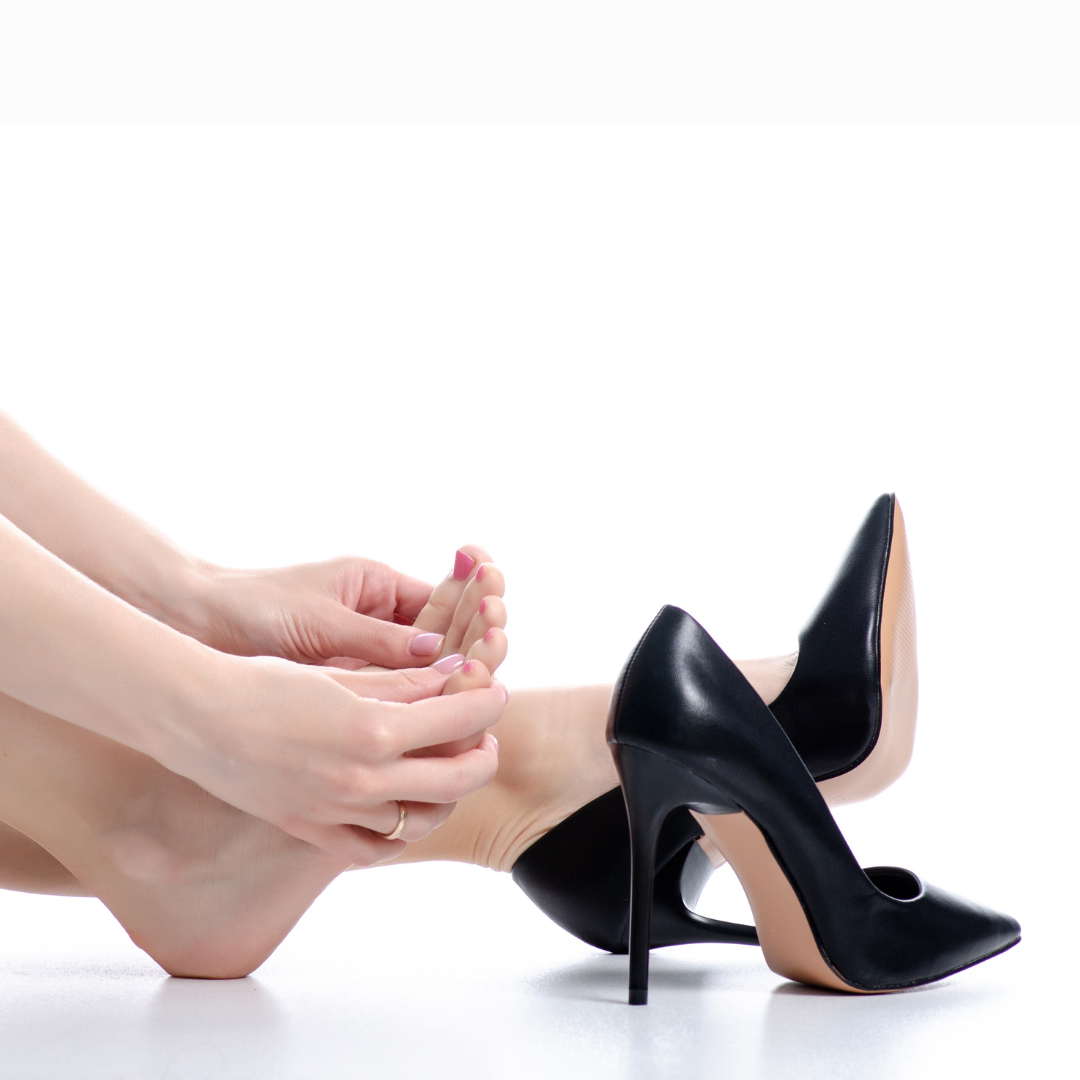High heels have long been a fashionable choice for many, but their impact on foot health is significant and multifaceted. They have a long and varied history, dating back to ancient Egypt, where both men and women wore them for ceremonial purposes. By the 19th century, high heels became synonymous with femininity and elegance, solidifying their place in women’s wardrobes. As Podiatrists, we often see patients suffering from various issues related to wearing high heels. Today, we will explore common foot issues caused by high heels and the biomechanics involved.
 6 Common Foot Issues Caused by High Heels
6 Common Foot Issues Caused by High Heels
Why do High Heels lead to Foot Problems?
The biomechanics of common foot issues caused by high heels involve the alteration of natural foot mechanics and weight distribution. High heels shift the body’s weight forward onto the ball of the foot, increasing pressure on the metatarsal heads. This unnatural weight distribution can lead to metatarsalgia, characterized by pain and inflammation in the ball of the foot. The elevated heel and narrow toe box force the toes into a cramped position, contributing to the development of bunions and hammertoes by altering the alignment and function of the toes over time.
Plantar fasciitis occurs due to the increased strain on the plantar fascia, the ligament that runs along the bottom of the foot, as high heels elevate the heel and cause excessive stretching and stress on this tissue. The altered gait also affects the entire lower body. It shortens the stride and increases knee flexion, placing additional stress on the knees and leading to potential knee and lower back problems.
The instability of high heels can result in an increased risk of ankle sprains, as the ankle joint is less stable and more prone to twisting or rolling. Corns and calluses form due to the friction and pressure exerted by high heels on specific areas of the foot, causing the skin to thicken as a protective response. Understanding these biomechanical changes underscores the importance of choosing footwear that promotes natural foot function and reduces excessive pressure and strain on the feet.
5 Tips to Preventing Foot Pain and Problems
1) Limit Usage of High Heels
Reducing the frequency and duration of wearing high heels can significantly decrease the risk of developing foot problems.
2) Choose Sensible Shoes
Opt for shoes with lower heels (2 inches or less), a wider toe box, and good arch support.
3) Foot Exercises
Regular stretching and strengthening exercises can help maintain foot health and flexibility.
4) Toe Exercises

Exercises that strengthen and stretch the toes can help prevent deformities.
5) Custom Orthotics

In some cases, custom orthotic devices can provide additional support and alleviate pain caused by high heels.
While heels can be a stylish choice, they come with significant risks to foot health. Awareness and preventive measures can help mitigate these risks, but it is essential to prioritize comfort and proper foot mechanics to maintain overall foot health. I always like to give my patients the analogy that wearing heels is like eating fried chicken. You can wear them for 2-3 hours if required at a wedding or corporate event, however, they should not be the shoe of choice everyday due to its detrimental foot effects. Just like eating fried chicken, wearing shoes of this kind requires “dieting” and some compromise for the betterment of our foot health.
Consulting with a podiatrist can provide thorough assessment and treatment options for those experiencing foot issues or foot pain. If you have any further questions or need to see a Podiatrist, please book in to see us today!

